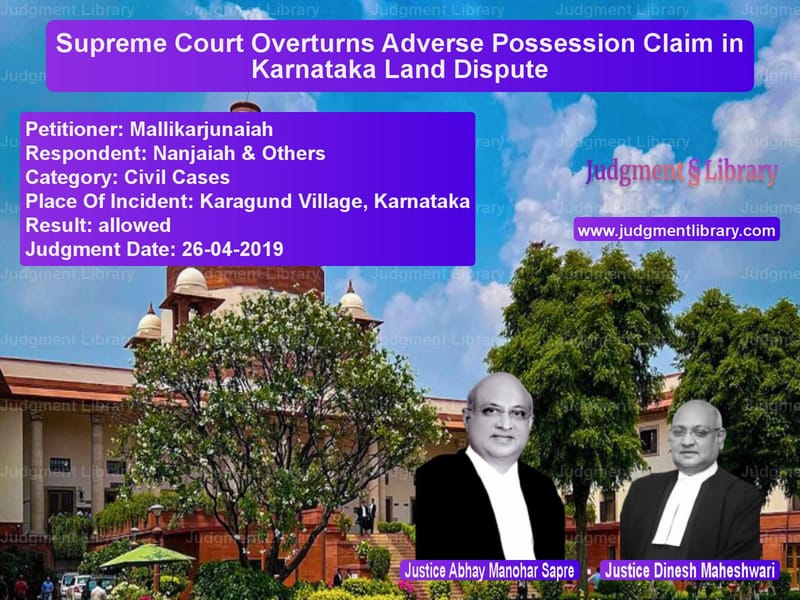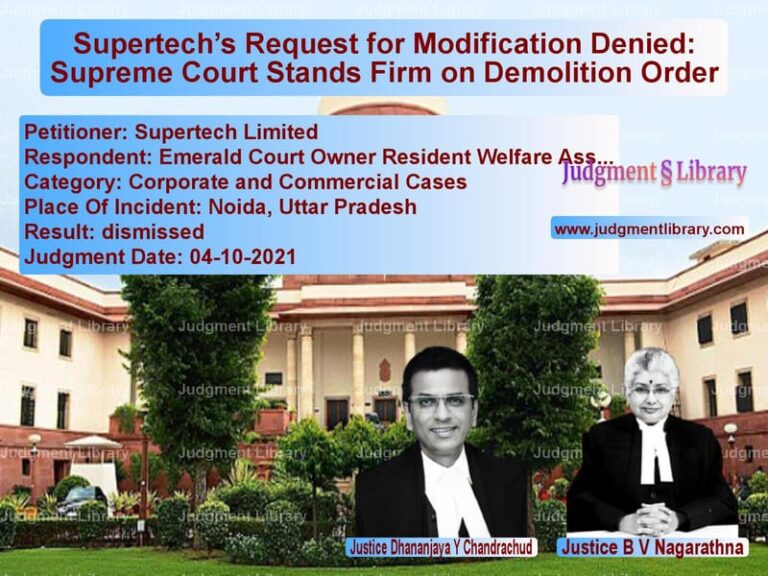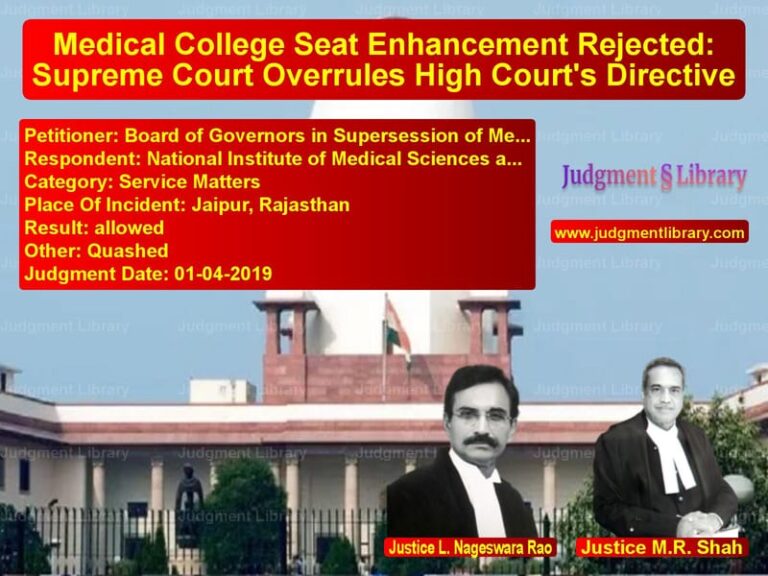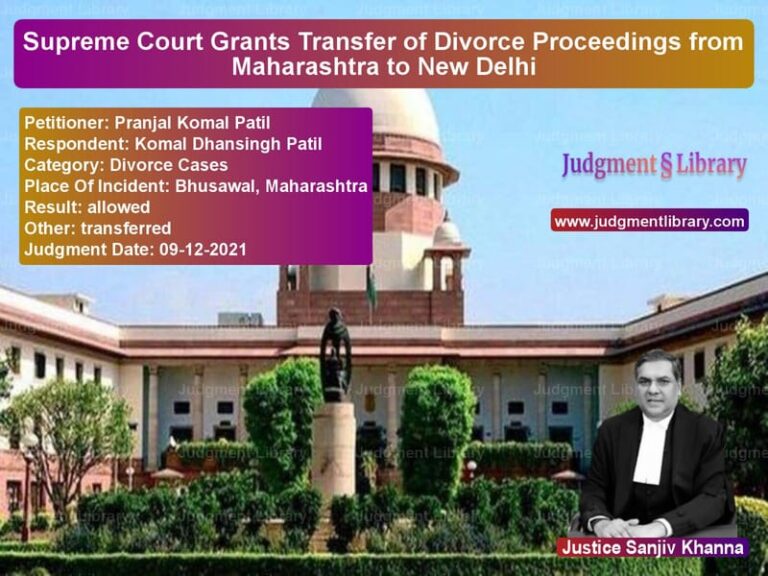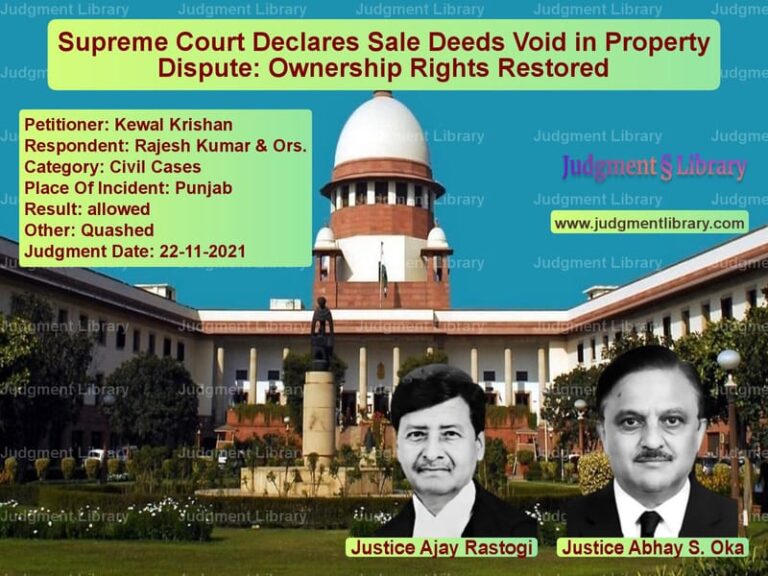Supreme Court Overturns Adverse Possession Claim in Karnataka Land Dispute
The Supreme Court of India has ruled in favor of Mallikarjunaiah, the plaintiff in a long-standing Karnataka land dispute, overturning the High Court’s decision that granted adverse possession rights to the defendants. The Court held that the defendants had failed to establish their claim of adverse possession over the disputed 1 Gunta of land in Sy. No.17/3.
Background of the Case
The dispute involved land in Karagund Village, Javagal Hobli, Arasikere Taluk, Hassan District, Karnataka. The appellant, Mallikarjunaiah, had filed a civil suit in 1992 seeking a declaration of his title over land parcels described in Schedule ‘A’ and a perpetual injunction against the defendants regarding a specific 1 Gunta of land in Sy. No.17/3, listed in Schedule ‘B.’
The dispute arose when Mallikarjunaiah discovered in 1983 that the defendants had encroached upon the 1 Gunta land in Sy. No.17/3. Initially, through local intervention, the encroached land was restored to him. However, a legal challenge followed when he sought formal ownership declaration and an injunction.
The defendants countered by asserting that they had perfected ownership over the disputed land through adverse possession. The Trial Court ruled in favor of the plaintiff for most of the land but upheld the defendants’ adverse possession claim over the 1 Gunta in question. The plaintiff’s first appeal was dismissed, and the Karnataka High Court upheld the adverse possession claim. Aggrieved, he approached the Supreme Court.
Key Legal Issues Before the Supreme Court
- Whether the High Court correctly held that the defendants had perfected their ownership through adverse possession.
- Whether adverse possession was adequately established under settled legal principles.
- Whether the plaintiff’s title and right to possession should have been recognized.
Arguments Before the Supreme Court
Appellant’s (Mallikarjunaiah) Contentions:
- The appellant argued that he had inherited the land after a partition in 1980, making him the rightful owner.
- He contended that adverse possession requires proof of continuous, open, and hostile possession against the owner’s rights, which the defendants failed to establish.
- The appellant submitted that the suit was filed in 1992, within 12 years from the date of knowledge in 1983, and hence adverse possession could not have been completed.
Respondent’s (Defendants) Counterarguments:
- The defendants argued that they had been in possession of the disputed land for an extended period and had exercised ownership rights over it.
- They contended that their long possession, without intervention from the plaintiff, should be deemed adverse possession.
- They relied on the rulings of the lower courts affirming their claim.
Supreme Court’s Observations
The Supreme Court made significant observations regarding the law on adverse possession:
- “Mere possession, however long it may be, does not necessarily mean that it is adverse to the true owner. Adverse possession must be in denial of the true owner’s title.”
- “The burden of proof lies entirely on the party claiming adverse possession, and such possession must be open, hostile, exclusive, and to the knowledge of the true owner for a continuous period of 12 years.”
- “In this case, the plaintiff was unaware of the encroachment until 1983, and he took immediate steps to reclaim possession, filing the suit in 1992. The claim of adverse possession is, therefore, unsustainable.”
- “Possession by one co-owner is presumed to be on behalf of all co-owners unless proven otherwise, and there was no evidence that the defendants exercised hostile possession to the plaintiff’s knowledge for the requisite period.”
The Court relied on earlier precedents, including T. Anjanappa vs. Somalingappa (2006) and Chatti Konati Rao vs. Palle Venkata Subba Rao (2010), which reiterated that the claim of adverse possession must be based on a hostile assertion of ownership, not merely long possession.
Final Judgment
The Supreme Court ruled in favor of the appellant:
- The Karnataka High Court’s finding of adverse possession was overturned.
- The plaintiff’s ownership over the entire land, including the disputed 1 Gunta in Sy. No.17/3, was recognized.
- The defendants were directed to vacate the encroached portion within three months and hand over possession to the plaintiff.
Conclusion
This ruling sets an important precedent on adverse possession law in India. It reinforces the principle that mere possession does not equate to ownership and that an adverse possession claim must meet strict legal requirements. The decision protects landowners from wrongful encroachments and ensures that ownership rights are upheld unless proven otherwise under established legal standards.
Petitioner Name: Mallikarjunaiah.Respondent Name: Nanjaiah & Others.Judgment By: Justice Abhay Manohar Sapre, Justice Dinesh Maheshwari.Place Of Incident: Karagund Village, Karnataka.Judgment Date: 26-04-2019.
Don’t miss out on the full details! Download the complete judgment in PDF format below and gain valuable insights instantly!
Download Judgment: Mallikarjunaiah vs Nanjaiah & Others Supreme Court of India Judgment Dated 26-04-2019.pdf
Direct Downlaod Judgment: Direct downlaod this Judgment
See all petitions in Property Disputes
See all petitions in Landlord-Tenant Disputes
See all petitions in Specific Performance
See all petitions in Judgment by Abhay Manohar Sapre
See all petitions in Judgment by Dinesh Maheshwari
See all petitions in allowed
See all petitions in supreme court of India judgments April 2019
See all petitions in 2019 judgments
See all posts in Civil Cases Category
See all allowed petitions in Civil Cases Category
See all Dismissed petitions in Civil Cases Category
See all partially allowed petitions in Civil Cases Category

